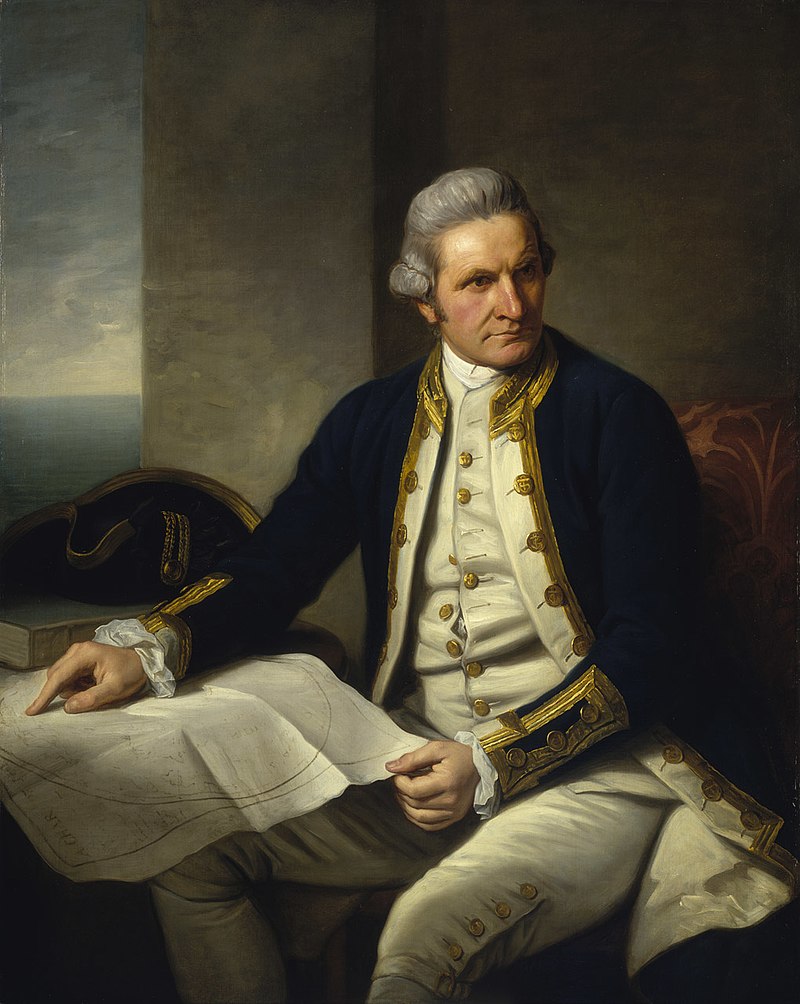
This week in history, the United Kingdom’s Captain James Cook celebrated two accomplishments. In 1773, he led the first known expedition to sail south of the Antarctic Circle. Cook and his crew were trying to find an imagined continent called Terra Australis – or to prove that it didn’t exist. Scholars had long believed the Earth must be “balanced,” with the same amount of land in the northern and southern hemispheres. The south had too little, so there had to be a missing continent. But Cook sailed to every predicted location of Terra Australis (“southern land”) and found nothing but open water, more or less disproving the theory. (Cook did not find Antarctica, though he suspected its existence. But this actual southern continent was too small to support the Terra Australis “hemisphere balance” theory.)
Cook’s second achievement this week came in 1778. He and his crew became the first known Europeans to visit the Hawaiian Islands. He called them the “Sandwich Islands,” after the Earl of Sandwich, but fortunately the name didn’t stick. Sadly, Hawaii was Cook’s last port of call. The Hawaiians were friendly during the initial British visit. But relations soured on a second visit in 1779, leading to violence and deaths on both sides, eventually including the captain himself.

0 Comments